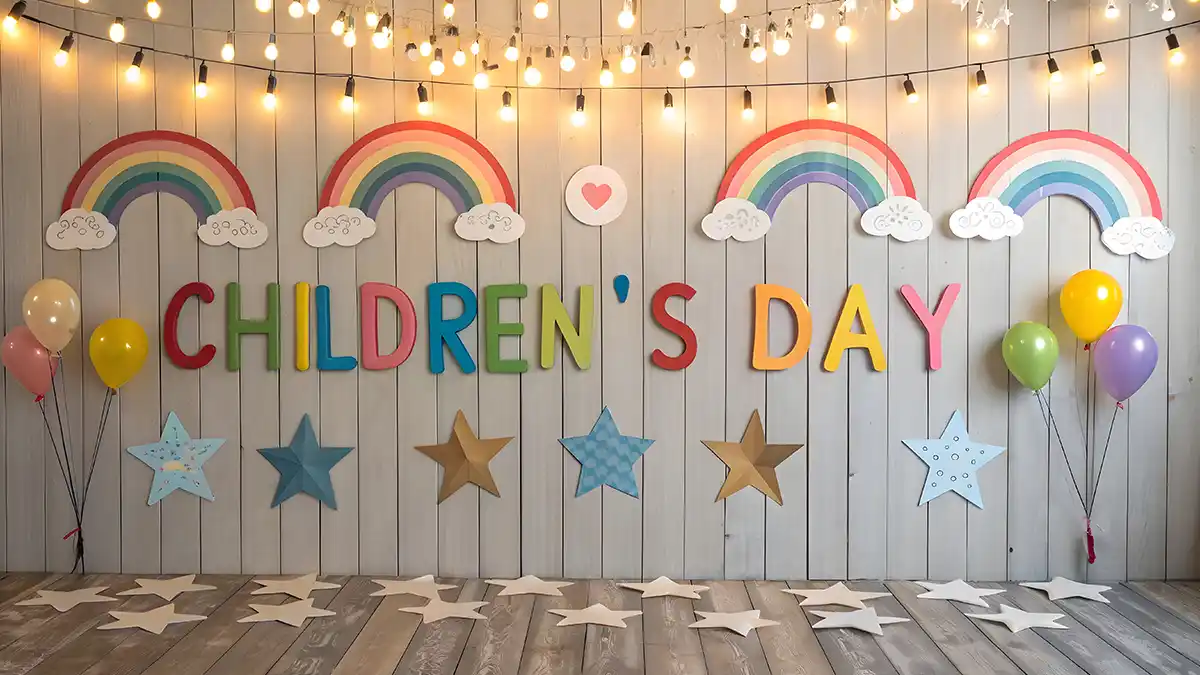Around the world, Children’s Day is celebrated on different dates with unique traditions to honour children and their rights. While the United Nations recognises 20th November as the Universal Children’s Day, many countries have their own national celebrations as well. For instance, in India, it’s celebrated on 14th November, coinciding with the birthday of Pandit Jawaharlal Nehru. Continue reading to discover how different cultures around the world celebrate this special day to honour the next generation.
Why is Children’s Day Celebrated Globally?

The idea for Children’s Day originated in the 1924 Geneva Declaration of the Rights of the Child and was formally established by the United Nations in 1954. The key objectives were to:
- Raise awareness about child welfare and rights
- Promote education as a fundamental right
- Protect children from exploitation and harm
Over the years, Children’s Day has evolved from a purely advocacy-based event into a joyful celebration that combines awareness with festivity. Communities around the world now use the occasion to reaffirm their responsibility towards nurturing and protecting young minds.
Also Read: How to Apply for an Education Loan Step-by-Step Guide
Children’s Day Traditions Around the World
India (14 November)
India celebrates Children’s Day on Pandit Jawaharlal Nehru’s birth anniversary. Schools organise cultural programmes, fancy dress competitions, and sports events. In some cases, the teachers participate in the celebrations and perform for the children, reversing the traditional classroom dynamic. Awareness drives on child rights, health, and education are also conducted.
Turkey (23 April)
Turkey's National Sovereignty and Children's Day is a unique celebration. On this day, children symbolically take over key government offices, and international festivals bring together children from diverse cultures to participate in cultural exchanges and performances.
Japan (5 May - Kodomo no Hi)
Japan's Children's Day takes place during the Golden Week holidays. Families display koinobori (carp-shaped streamers) outside their homes, which serve as a symbol of power and resilience. Traditional foods like kashiwa mochi and chimaki are enjoyed, and families often take trips together to mark the day.
México (30 April - Día del Niño)
In Mexico, families celebrate this day with school parties, games, music, and sweets. Families spend the day together in parks, theme parks, or restaurants, focusing on creating happy memories and joyful experiences.
Also Read: 10 Best Countries for Indian Students to Study MBBS Abroad
China (1 June)
China observes International Children’s Day with school holidays and special performances. Children receive gifts and enjoy outings to parks and theatres. Schools often organise cultural programmes showcasing students’ talents.
Brazil (12 October)
In Brazil, Children’s Day coincides with Our Lady of Aparecida, a major religious holiday. Schools and families celebrate with festivities and gift exchanges, while charities organise donation drives so that underprivileged children can join in the celebrations.
Also Read: 7 Reasons Why You Should Consider an Education Loan
To Conclude
Children’s Day celebrations worldwide honour childhood through unique cultural traditions. As you celebrate this special day, remember that securing your child’s education is a lasting investment in their future.
Poonawalla Fincorp’s Education Loan offers flexible financing options for higher studies in India or abroad, helping you support your child’s dreams with ease and confidence.
FAQs
Which country first celebrated Children’s Day?
Turkey was one of the first countries to celebrate Children’s Day on April 23, 1920, officially. This was shortly after the founding of the Republic, making it a pioneering nation in recognising children’s importance to society.
Why do different countries celebrate Children’s Day on different dates?
Each country chooses dates of national or cultural significance. For example, India celebrates it on Chacha Nehru’s birthday, while others align it with historical or religious events.
How is International Children’s Day different from Universal Children’s Day?
International Children's Day (1 June) traces its roots to socialist countries and is celebrated to a large extent by China, Russia, and Eastern Europe. The UN created Universal Children’s Day (20 November), which coincides with the adoption of the Declaration of the Rights of the Child in 1959.
What is the significance of Children’s Day in India?
Children's Day in India is a tribute to Jawaharlal Nehru, the country's first Prime Minister, who was deeply fond of children and championed the cause of education as the foundation of a nation. The day emphasises child welfare, education rights, and creating a nurturing environment for young Indians to thrive and contribute to society.
We take utmost care to provide information based on internal data and reliable sources. However, this article and associated web pages provide generic information for reference purposes only. Readers must make an informed decision by reviewing the products offered and the terms and conditions. Loan disbursal is at the sole discretion of Poonawalla Fincorp.
*Terms and Conditions apply